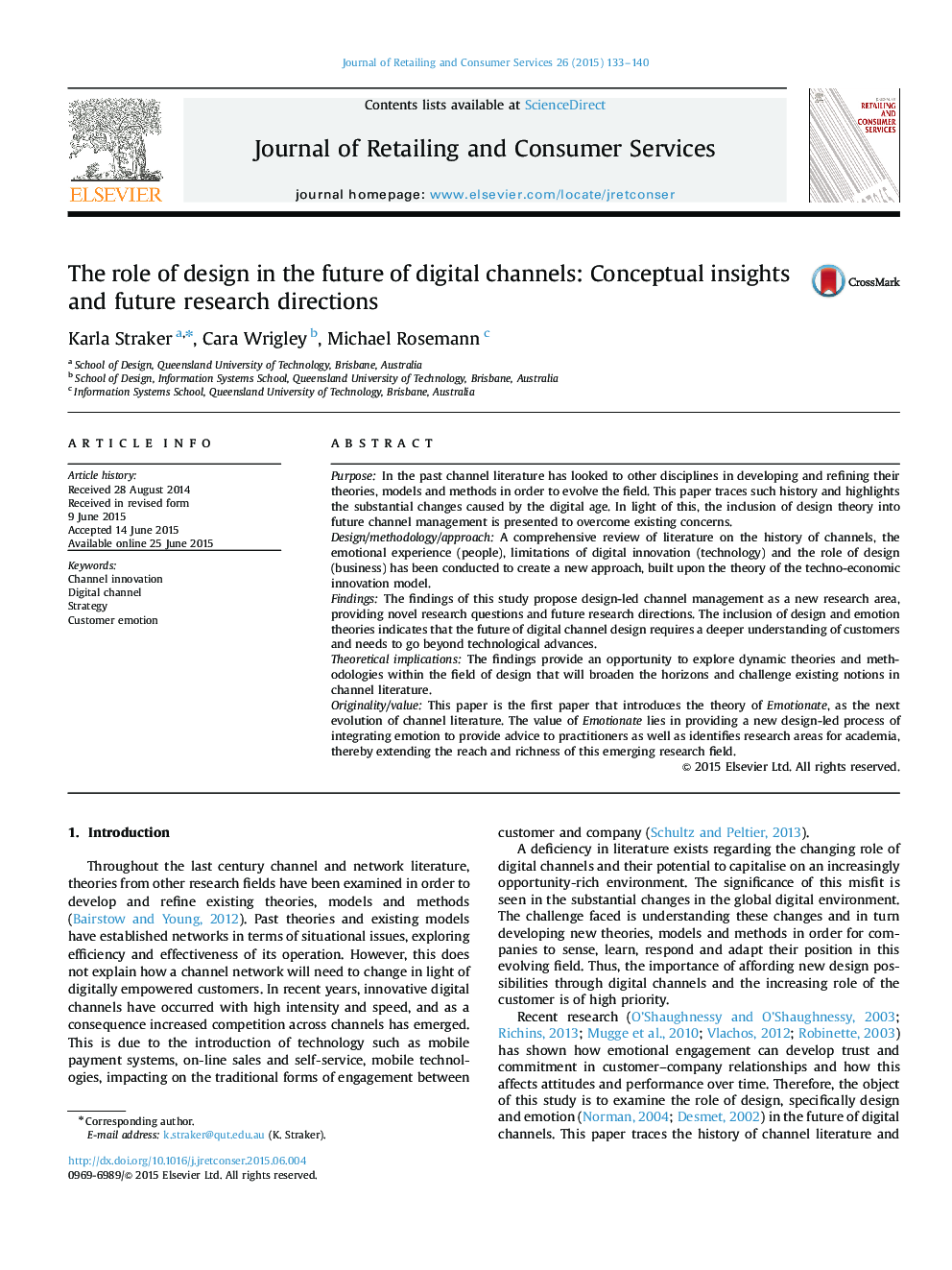| Article ID | Journal | Published Year | Pages | File Type |
|---|---|---|---|---|
| 1028860 | Journal of Retailing and Consumer Services | 2015 | 8 Pages |
•Channel literature has looked to other disciplines to develop their theories.•The future of digital channel strategy requires a deeper understanding of customers.•This is the first paper to introduce the theory of Emotionate.•The value of Emotionate in is providing a design-led process of integrating emotions.•The theory provides insights and future research directions for digital channels.
PurposeIn the past channel literature has looked to other disciplines in developing and refining their theories, models and methods in order to evolve the field. This paper traces such history and highlights the substantial changes caused by the digital age. In light of this, the inclusion of design theory into future channel management is presented to overcome existing concerns.Design/methodology/approachA comprehensive review of literature on the history of channels, the emotional experience (people), limitations of digital innovation (technology) and the role of design (business) has been conducted to create a new approach, built upon the theory of the techno-economic innovation model.FindingsThe findings of this study propose design-led channel management as a new research area, providing novel research questions and future research directions. The inclusion of design and emotion theories indicates that the future of digital channel design requires a deeper understanding of customers and needs to go beyond technological advances.Theoretical implicationsThe findings provide an opportunity to explore dynamic theories and methodologies within the field of design that will broaden the horizons and challenge existing notions in channel literature.Originality/valueThis paper is the first paper that introduces the theory of Emotionate, as the next evolution of channel literature. The value of Emotionate lies in providing a new design-led process of integrating emotion to provide advice to practitioners as well as identifies research areas for academia, thereby extending the reach and richness of this emerging research field.
